Measurement areas
- Governance & Strategy
- Genetic Resources
- Intellectual Property
- Research & Development
- Seed Production
- Marketing & Sales
- Capacity Building

The Access to Seeds Index is now part of the World Benchmarking Alliance. All indexes up to 2020 can be found here. New indexes and methodologies are published on the website of the WBA.
Stay here worldbenchmarkingalliance.org
Seed companies are a crucial partner in efforts to raise smallholder farmer productivity and achieve food and nutrition security. For the first time, the Access to Seeds Index shines a light on companies taking the lead in reaching smallholder farmers in South and Southeast Asia.
Small-scale farming dominates the agricultural landscape in South and Southeast Asia and sub-Saharan Africa. Helping farmers in these regions to grow more, and more nutritious, food is key to achieving food and nutrition security, one of the major challenges outlined by the United Nations’ Sustainable Development Goals (SDGs).
A large part of the answer to the question of how to raise agricultural productivity, while also remaining within the planetary boundaries and tackling climate change, will come from plant breeding – but only when the results of plant breeding reach smallholder farmers. This is where the seed industry comes in.
Over the coming months, the Access to Seeds Index will publish multiple indexes that evaluate the performance of the seed industry at the regional level in South and Southeast Asia and sub-Saharan Africa as well as the global seed industry as a whole. Benchmarking seed companies against their peers recognizes leadership, while providing an evidence base for the conversation on where and how the seed industry can do more.
The Access to Seeds Index, initiated by the Amsterdam-based Access to Seeds Foundation, it is one of the first benchmarks to be published as part of the World Benchmarking Alliance (WBA), launched last September during the UN General Assembly in New York. The goal of WBA benchmarks is to increase the contribution of the private sector to achieving the SDGs.
Thailand-based East-West Seed tops this first Access to Seeds Index for South and Southeast Asia. The company is built around a smallholder-centric business model, which is reflected in a client base made up almost entirely (98%) of smallholders.
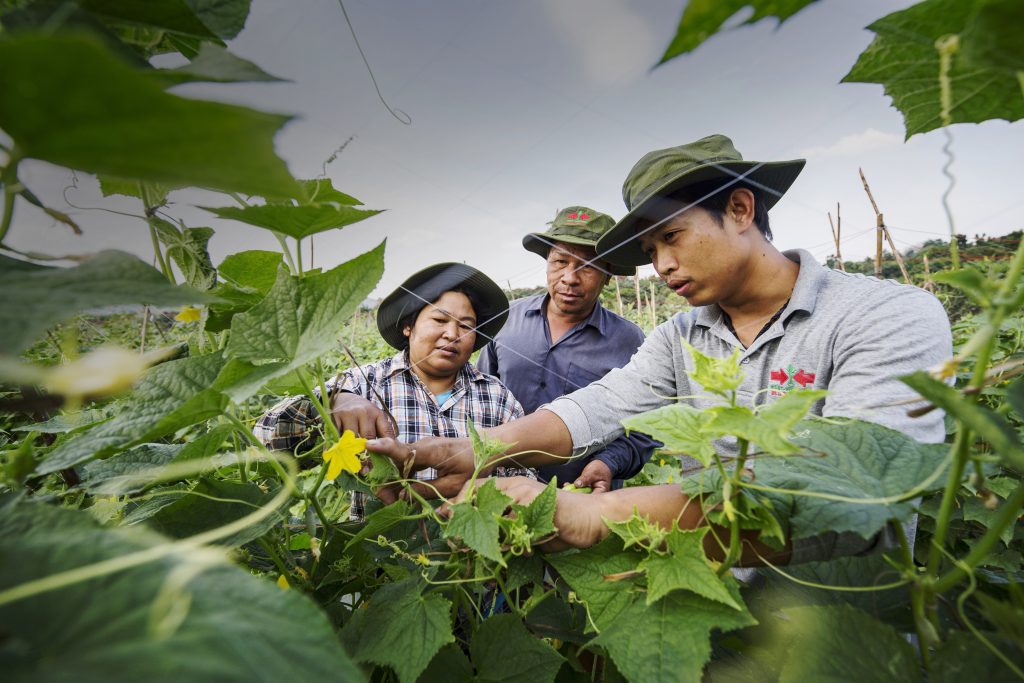
Mrs. Waraporn Kanpeerayot and Mr. Boonchai Kanpeerayot are short cucumber farmers in the Ratchaburi province in central Thailand. Working with them is East-West Seed spot promoter Mr Khajornsak Pothakarn. The majority of the marketing activities of East-West Seed focus on village and township levels, where mobile teams such as spot promoters and extension staff work in the fields in order to train and educate farmers. Photo credit: Marlies Wessels.
UN Agencies recently warned of “colossal human loss” to Asia as the fight against malnutrition has come to a standstill. Nearly half a billion people are undernourished in the region. Food and nutrition security is negatively affected by a changing climate which is impacting agriculture.
Adapting agriculture to new climate trends while also raising production poses huge challenges to small food producers. Among a wide range of measures, these producers need to be included in food value chains and get access to new, stress-tolerant crop varieties, according to the UN.
Is the seed industry well positioned to partner in this challenge? This first evaluation of 24 leading seed companies in South and Southeast Asia shows that the industry is present in all countries. It is highly research-driven, releasing new varieties for a broad variety of crops. Seeds are sold in package sizes tailored to the needs of smallholders.
However, sales activities are not often accompanied by training to help farmers in adapting their practices and adopting new technologies. In addition, breeding and production activities tend to be concentrated in only a handful of countries. As a result, seed sector development in other countries does not progress to the same degree. Ultimately, the majority of smallholders in the region has yet to be reached.
Seed companies are present throughout the region but reaching only 20% of the smallholder farmers
Almost all companies selected for the South and Southeast Asia Index have a presence in India. Even in Afghanistan and Laos, which are relatively overlooked, six and nine companies respectively have a presence. However, in these countries as well as in Sri Lanka, Nepal and Cambodia, most companies limit their activities to sales. Often, only a single company reports having adoption strategies or extension services in place in any one of these five countries. The highest number of technical staff is reported in India. Based on estimates of farmers reached by the 24 companies in the index, together they reach no more than 20% of all active smallholder farmers.
Six countries are seed hubs; three countries lack breeding and production activities
India, Thailand, Indonesia, Vietnam, the Philippines and Bangladesh can be considered seed hubs, based on the concentration of production, breeding and processing activities by index companies in these countries. From a business point of view, it is logical that companies concentrate their breeding and production activities in select countries. For the country itself, these kinds of investments can have a positive effect on the advancement of the national seed industry. No company reports having breeding activities in Afghanistan, Cambodia, Laos, Myanmar and Sri Lanka. Neither was evidence found of production or processing activities in Afghanistan or Cambodia. However, local seed companies (not included in this index) do report having breeding activities in Afghanistan and Cambodia.
Vegetable seed is a key business driver; legumes are underrepresented
Two-thirds of the companies report that vegetable seed is one of their main business drivers, while half of the companies report that rice is one of their main crops. Overall, the industry offers a broad portfolio of vegetable seed. For field crops, most companies report being active in rice and maize. Even though half of the companies report having small grains like millet and sorghum in their portfolio, only one company reports that this is one of its top three crops. Legumes are generally underrepresented in company portfolios across the region.
For the majority of crops, the newest varieties are less than three years old; regional companies do more to release public research varieties
The age of varieties is an indicator of the investments seed companies make in their crop breeding programs. Global companies report that for 66% of the crops in their portfolio in the region the youngest variety is less than three years old. For regional seed companies, that percentage is slightly lower at 53% of their portfolio. New varieties are for the most part the result of companies’ own breeding programs. For global seed companies, this applies to 73% of the crops in their portfolio; for regional companies, 65% of the crops in their portfolio. When it comes to releasing varieties from public research, regional companies perform better: 12% of the crops in their portfolio versus 5% for global companies.
Hybrids dominate; regional companies extend the availability of open-pollinated varieties
Global companies offer for 70% of the crops in their portfolio only hybrid varieties. For regional companies this is 60%. Through the combined portfolios of regional seed companies, open-pollinated varieties (OPVs) are available for all crops in the index scope. Of the global companies, only East-West Seed, Limagrain and Advanta sell OPVs. Of the regional companies, National Seeds Corporation and Acsen HyVeg stand out for making OPVs available for almost all or all crops in their portfolio respectively. Given this emphasis on hybrids, it is surprising that only a few companies are involved in providing access to other inputs that are needed to achieve the best results from hybrids. The price and package size of fertilizers, in particular, can hamper the suitability of these kinds of seeds for smallholder farmers.
Most seed companies sell package sizes tailored to the needs of smallholder farmers
The size of seed packages is a clear indicator of whether the industry is geared toward the needs of smallholder farmers. The majority of companies report selling seed in small packages, in some cases just six seeds per package. Small seed packages for field crops generally range from 100g to 10kg, for vegetables from 5g to 1kg and for legumes from 50g to 1kg. On average, the industry offers two different package sizes for field crops and three different package sizes for vegetables. In field crops, Limagrain and Lal Teer Seed (maize) and Kalash Seeds (rice) are notable for offering a choice of four package sizes. In vegetable seeds, East-West Seed and Acsen HyVeg offer the most choice, with on average five different package sizes per crop.
The assessment of company performance is based on a total of 59 indicators grouped in seven measurement areas. Each measurement area has four categories of indicators: Commitment, Performance, Transparency and Leadership. A company’s overall score is the weighted sum of the scores in each measurement area.
Global seed companies set the example, with comprehensive strategies in place to support smallholder productivity and achieve the SDGs. Most regional companies see smallholders as their main clientele but do not communicate clear targets that would increase their accountability.
Ranking for Governance & Strategy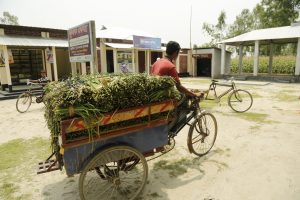
Companies strictly adhere to national laws and/or international treaties but could do more to support the conservation and use of genetic diversity in the region. Many companies, both regional and global, make significant use of germplasm from national and international research institutes and gene banks.
Ranking for Genetic Resources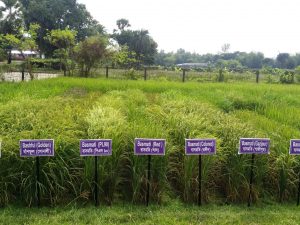
Half of the companies explicitly state that they do not limit the use of their varieties for further breeding or the use of farm-saved seeds. Few companies have tailored pricing strategies for their patent-protected material to ensure affordability for smallholder farmers.
Ranking for Intellectual Property
All companies have extensive breeding programs for a broad number of crops. However, regionally based seed companies lead the way, with breeding programs that include a focus on local crops, prioritize smallholder-relevant traits and are more supportive of agricultural biodiversity.
Ranking for Research & Development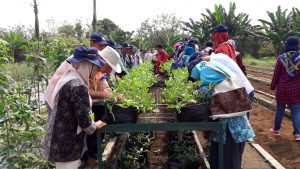
Half of the companies report involving smallholder farmers in seed production in most index countries; child labor remains a concern.
Ranking for Seed Production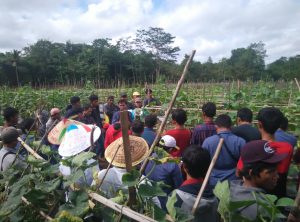
The seed industry as a whole offers a wide choice of crops, while regional companies broaden the availability of seeds for local crops and open-pollinated varieties. Less attention is paid to smallholder-appropriate affordability strategies.
Ranking for Marketing & Sales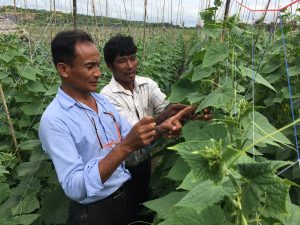
A majority of the companies provide agronomic training for
smallholder farmers, but few do so in all countries where they are present. Companies pay limited attention to the development and training needs of next-generation and women farmers.
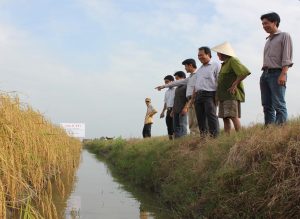
The index presents scorecards for each company, which can be accessed via the links below. The scorecards highlight a company’s presence and portfolio, leading practices and notable findings. They also present comparative strengths in relation to the other companies assessed.
View here to see how the company ranking works.
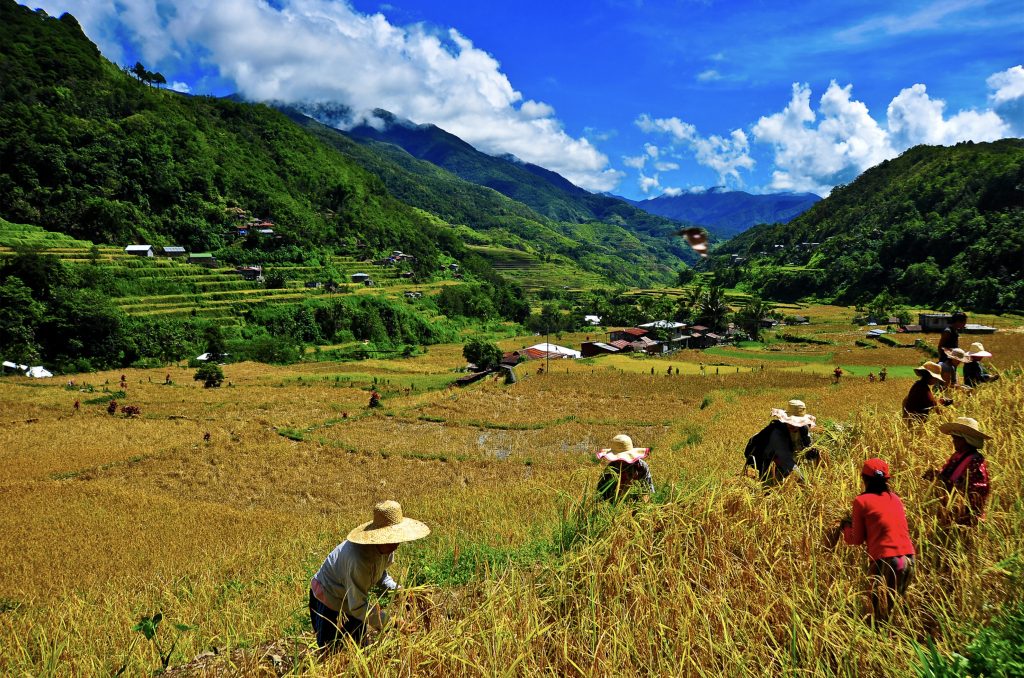
Ifugao women farmers in rice fields in the Philippines. Rice is the most important staple crop in South and Southeast Asia. It is therefore also a key crop for the seed industry: It is found in the portfolio of 18 of the 24 leading seed companies evaluated in this index and for half of them it is one of their most important business drivers. The majority of companies focus on hybrid rice. Seven of the companies report also selling open pollinated varieties that allow farmers to save seed and reuse it in the next season. Photo credit: Isagani Serrano, 2008 IRRI.
Six countries in the region where multiple leading seed companies invest in breeding, production and processing activities can be qualified as seed hubs. Country profiles provide an overview of the presence and activities of index companies in each country.
Nine index companies report having a presence in Afghanistan. They are only involved in the sale of vegetable crops. None of the companies in the index have seed production, testing, breeding, processing or extension activities.
Twenty-three index companies are present in Bangladesh, with most of the companies having testing locations. The Bangladeshi companies BRAC Seed and Agro Enterprise and Lal Teer Seed have complete seed value chains in the country, from breeding to extension.
Twelve index companies report having a presence in Cambodia, with four having testing locations and three offering extension activities. National seed actors (not included in the index) carry out breeding and production activities.
Twenty-six index companies report having a presence in India, with eight headquartered in the country. Companies have complete seed value chains in the country, making it a regional seed hub. India is the only index country participating in OECD seed schemes.
Twenty-one index companies report having a presence in Indonesia, with three companies having breeding, testing, seed production, processing, sales and extension activities along the entire seed value chain. The country is developing into a competitive seed hub.
Ten index companies have a presence in Laos, selling seed for both field crops and vegetables. However, seed business activities are limited. Two companies have testing locations, but only one company offers extension services.
Fourteen index companies report having a presence in Myanmar. None of the companies report breeding locations. Six companies indicate having testing locations, but other activities such as seed production, processing and extension are limited.
Eighteen index companies report having a presence in Nepal. While six companies indicate having testing locations, Lal Teer Seed is the only company that has a full seed value chain including breeding activities.
Twenty-two index companies report having a presence in Pakistan. Seed production is carried out by three companies with limited involvement of smallholder farmers. Some local seed companies (not included in the index) carry out breeding and production.
Nineteen index companies report having a presence in Sri Lanka, with eight having testing locations. Only two companies offer extension services. Some local companies (not included in the index) produce seed in the country, although Advanta is the only index company to do so.
Twenty-one index companies report having a presence Thailand. Most of the companies carry out breeding, testing and seed production, making the country one of the seed hubs in the region. Less than half of the companies offer extension services.
Eighteen index companies report having a presence in the Philippines. Eight companies indicate having testing locations. Six have breeding locations, four have processing locations and six produce seed in the country, making it one of the seed hubs in the region.
Twenty-one index companies report having a presence in Vietnam. It can be considered a seed hub, with seed production and breeding activities being carried out by nine and six companies respectively. Only six companies offer extension services.
Nine index companies report having a presence in Afghanistan. They are only involved in the sale of vegetable crops. None of the companies in the index have seed production, testing, breeding, processing or extension activities.
Twenty-three index companies are present in Bangladesh, with most of the companies having testing locations. The Bangladeshi companies BRAC Seed and Agro Enterprise and Lal Teer Seed have complete seed value chains in the country, from breeding to extension.
Twelve index companies report having a presence in Cambodia, with four having testing locations and three offering extension activities. National seed actors (not included in the index) carry out breeding and production activities.
Twenty-six index companies report having a presence in India, with eight headquartered in the country. Companies have complete seed value chains in the country, making it a regional seed hub. India is the only index country participating in OECD seed schemes.
Twenty-one index companies report having a presence in Indonesia, with three companies having breeding, testing, seed production, processing, sales and extension activities along the entire seed value chain. The country is developing into a competitive seed hub.
Ten index companies have a presence in Laos, selling seed for both field crops and vegetables. However, seed business activities are limited. Two companies have testing locations, but only one company offers extension services.
Fourteen index companies report having a presence in Myanmar. None of the companies report breeding locations. Six companies indicate having testing locations, but other activities such as seed production, processing and extension are limited.
Eighteen index companies report having a presence in Nepal. While six companies indicate having testing locations, Lal Teer Seed is the only company that has a full seed value chain including breeding activities.
Twenty-two index companies report having a presence in Pakistan. Seed production is carried out by three companies with limited involvement of smallholder farmers. Some local seed companies (not included in the index) carry out breeding and production.
Nineteen index companies report having a presence in Sri Lanka, with eight having testing locations. Only two companies offer extension services. Some local companies (not included in the index) produce seed in the country, although Advanta is the only index company to do so.
Twenty-one index companies report having a presence Thailand. Most of the companies carry out breeding, testing and seed production, making the country one of the seed hubs in the region. Less than half of the companies offer extension services.
Eighteen index companies report having a presence in the Philippines. Eight companies indicate having testing locations. Six have breeding locations, four have processing locations and six produce seed in the country, making it one of the seed hubs in the region.
Twenty-one index companies report having a presence in Vietnam. It can be considered a seed hub, with seed production and breeding activities being carried out by nine and six companies respectively. Only six companies offer extension services.
Disclaimer
The online and printed reports presented by the Access to Seeds Index are intended to be for information purposes only and not as promotional material in any respect. The material is not intended as an offer or solicitation for the purchase or sale of any financial instrument. The reports are not intended to provide accounting, legal or tax advice or investment recommendations.
As a multi-stakeholder and collaborative project the Access to Seeds Index involves members of relevant stakeholder groups in expert or advisory committees. The findings, interpretations and conclusions expressed in Access to Seeds Index reports may not necessarily reflect the views of all involved or the organizations they represent.
The data used to compile the Access to Seeds Index, the ranking and findings are based on information publicly disclosed by companies or submitted on engagement. Information has been cross-checked and where relevant, verified with experts. Final scorecards were discussed with individual companies for fact checking purposes. Whilst based on information believed to be reliable, no guarantee can be given that it is accurate or complete.
Acknowledgements
The Access to Seeds Index 2019 is made possible through the collaborative team efforts of many experts, authors, researchers, analysts and funders. Also the guidance from the Expert Review Committees and the Supervisory Board, as well as the cooperation with the team of the World Benchmarking Alliance have been helpful.
On the side of companies, representatives have been available to provide feedback on the methodology in various stages of the development process. Also teams have been working on gathering and submitting the requested data and provide clarification where necessary.
The Access to Seeds Foundation is grateful for the contributions and expertise, of each and would like to offer thanks to those who provided valuable feedback throughout the development of the Access to Seeds Index.
Copyright
No part of this report may be reproduced in any manner without the written permission of the Access to Seeds Foundation.
Editor
Cecily Layzell, Amsterdam, The Netherlands
Design
Kummer & Herrman, Utrecht, The Netherlands
Web development
Studio September, Utrecht, The Netherlands
Photography
East-West Seed: Marlies Wessels
IRRI: Isagani Serrano, 2008 IRRI.
Governance & Strategy: Abir Abdullah
Genetic Resources: Ariful Islam, BRAC
Intellectual Property: Daniel Rosenthal
Research & Development: Bayer
Seed Production: East-West Seed
Marketing & Sales: East-West Seed
Capacity Building: Bayer